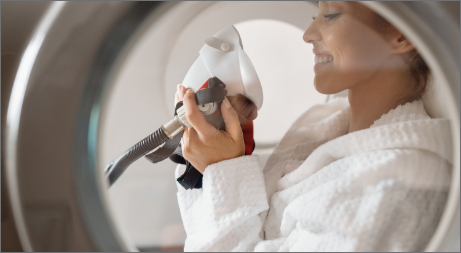Experience a cutting-edge approach to treating Dementia with HBOT at our supervisionKirti Nagar, Delhi, India clinic. Our hyperbaric chambers provide a transformative environment where oxygen therapy takes center stage in combating the effects of Dementia. Discover the power of pressurized oxygen in enhancing brain function and improving cognitive abilities. Step into a realm of innovative healthcare that prioritizes holistic well-being and seeks to redefine traditional medical interventions. Unleash the potential of Hyperbaric Oxygen Therapy in the fight against Dementia at our state-of-the-art facility. Join us on a journey towards healing and hope.
Hyperbaric oxygen therapy provides oxygen under pressure, requires medical supervision.
Hyperbaric oxygen therapy (HBOT) is a medical treatment where patients breathe 100% oxygen in a pressurized chamber, typically at 1.5 to 3 times the normal atmospheric pressure. This elevated pressure increases the amount of oxygen dissolved in the blood, promoting enhanced healing and combating infections. Originally developed to treat decompression sickness in divers, HBOT is now used for various conditions like chronic non-healing wounds, carbon monoxide poisoning, and certain infections. The therapy aids in tissue repair, reduces inflammation, and supports the body’s natural healing processes by stimulating the formation of new blood vessels and improving white blood cell function. Each session lasts about 1-2 hours, and multiple sessions may be required depending on the condition being treated. HBOT's unique ability to deliver high concentrations of oxygen directly to damaged tissues makes it a powerful tool in modern medicine.


Dementia scrutinized under more stringent supervision for accurate diagnosis.
Dementia is a complex neurological disorder characterized by a progressive decline in cognitive function, affecting memory, thinking, behavior, and the ability to perform everyday activities. Unlike normal aging, dementia involves significant brain cell damage, often linked to diseases like Alzheimer's, vascular dementia, and Lewy body dementia. A unique aspect of dementia is its diverse manifestations; while memory loss is common, some forms primarily impact language, problem-solving, or motor skills. The disease can alter personality and behavior, leading to confusion, mood swings, and social withdrawal. Research suggests that lifestyle factors, including diet, exercise, and mental engagement, can influence dementia risk. Current treatments focus on managing symptoms and improving quality of life, as there is no cure yet. Early diagnosis and a holistic care approach, incorporating medical, psychological, and social support, are crucial in helping individuals with dementia maintain independence and well-being for as long as possible.
Hyperbaric oxygen therapy offers hope for treating dementia under supervision.
Hyperbaric oxygen therapy (HBOT) is emerging as a potential adjunctive treatment for dementia, particularly Alzheimer's disease. By delivering 100% oxygen at higher-than-normal atmospheric pressures in a specialized chamber, HBOT increases oxygen saturation in the blood and, consequently, in brain tissues. This enhanced oxygenation can help reduce inflammation, promote neurogenesis, and improve cellular repair mechanisms. Preliminary studies suggest that HBOT might improve cognitive function, slow disease progression, and enhance overall brain health in dementia patients by boosting mitochondrial function and reducing oxidative stress. Additionally, it may help clear amyloid plaques, a hallmark of Alzheimer's. Each session typically lasts 60-90 minutes, with a series of treatments necessary to observe significant benefits. While more research is needed to fully understand and validate its efficacy, HBOT offers a promising, non-invasive approach to supporting conventional dementia treatments and improving patients' quality of life.

Hyperbaric oxygen therapy under supervision shows promise in treating dementia patients effectively.
Hyperbaric oxygen therapy (HBOT) offers a promising, innovative approach to managing dementia, particularly Alzheimer's disease. By significantly increasing oxygen levels in the brain, HBOT can enhance cellular repair, reduce inflammation, and potentially improve cognitive function. The therapy’s ability to target and ameliorate the underlying mechanisms of dementia, such as mitochondrial dysfunction and oxidative stress, sets it apart from traditional treatments. Although still in the research phase, initial studies indicate that HBOT might slow disease progression and improve patients' quality of life by enhancing brain health and cognitive abilities. As an adjunctive therapy, it complements existing treatments, providing a holistic approach to dementia care. With its potential to clear amyloid plaques and stimulate neurogenesis, HBOT represents a beacon of hope for those affected by this challenging condition. Continued research and clinical trials are essential to fully understand its benefits and integrate it into mainstream dementia treatment protocols.
References
https://www.ncbi.nlm.nih.gov/pmc/articles/PMC6352566/
